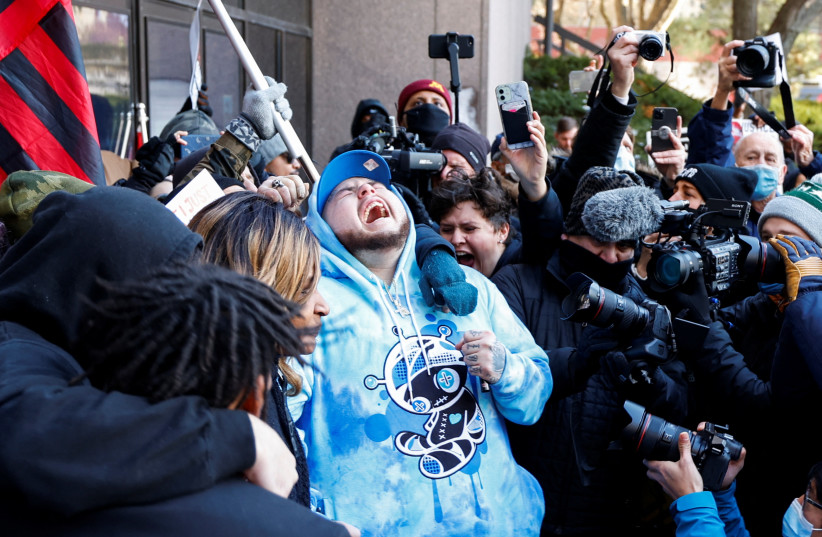A Minnesota judge on Friday sentenced former police officer Kimberly Potter to two years in the fatal shooting of Black motorist Daunte Wright during a traffic stop, a lighter sentence than the just over seven years in prison sought by prosecutors.
Potter, 49 -- who mistook her handgun for her Taser in firing on Wright, 20, as he resisted officers who pulled him over in a Minneapolis suburb last April -- was found guilty by a jury in December of first-degree and second-degree manslaughter.
"This is a cop who made a tragic mistake," Judge Regina Chu said in delivering the sentence of 24 months, two-thirds of which is to be served in prison and the remaining third on supervised release.
The shooting in Brooklyn Center triggered multiple nights of protests there, capturing national attention at a time many Americans were reckoning with racism and police violence.
It happened just a few miles north of where Derek Chauvin, a former Minneapolis police officer, was standing trial for killing George Floyd, a Black man whose 2020 death during an arrest helped set off demonstrations around the nation and the world.

Chauvin, who knelt on Floyd's neck for more than nine minutes, was convicted of murder. Both he and Potter are white.
At Friday's sentencing hearing in Minneapolis, Wright's family members had asked Judge Chu to give the former officer the maximum sentence possible, questioning the sincerity of her remorse.
His mother Katie Wright criticized Potter for not mentioning her son's name during her testimony and for her mug shot, taken after her conviction, in which she smiled.
"She left our world with so much darkness and heartache," Wright told the court.
"I’ll never be able to forgive you," she told Potter.
Paul Engh, one of Potter's lawyers, said his client meant no disrespect with her booking photo, which shows her smiling. He said she was asked by a prison official to smile and complied.
Engh asked the judge to consider that Wright had resisted arrest, which he said constituted an "aggressive act," and requested a sentence of probation.
"This was an unintentional crime. It was an accident," Engh said.
The Minnesota attorney general's office had argued that Potter should be incarcerated for 86 months, or seven years and two months, in line with state guidelines for first-degree manslaughter.
Under state law, defendants facing multiple charges for the same act are sentenced only for the most serious count.
"Life is something this society holds in the highest regard," Attorney General Keith Ellison wrote in a memo to Judge Chu's court on Tuesday. "The degree of Defendant Potter's recklessness in handling her firearm and causing Daunte Wright's death cannot be excused or even minimized."
In arguing for leniency, Potter's lawyers cited her lack of a prior criminal record, her complaint-free 26 years on the police force, and the remorse she showed during emotional testimony at trial.
They centered their argument on a 1982 state Supreme Court case affirming a lower-court sentencing of Richard Trog, who had pleaded guilty to burglary with assault, to five years probation rather than prison as dictated by the guidelines. They said that Judge Chu should look at Potter in a similar light to Trog, who did not have a prior criminal record and was contrite.
Potter and a second officer pulled Wright over because there was an air freshener illegally hanging from his mirror and his vehicle registration tab had expired. They then learned of a warrant for his arrest on a misdemeanor weapons charge and sought to detain him. Wright resisted, breaking free from the second officer.
Potter then shouted, "Taser, Taser, Taser" and fired at Wright with her handgun, video from her body-worn camera showed. Potter testified that she feared for the life of a third officer who had entered the car through the passenger side.
